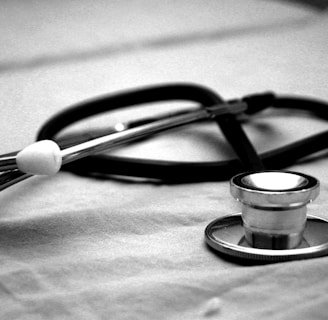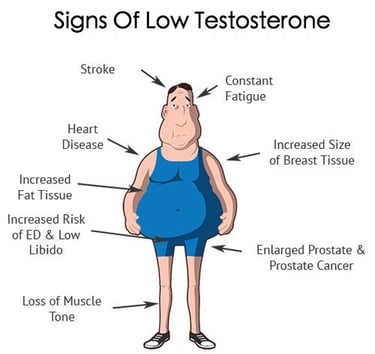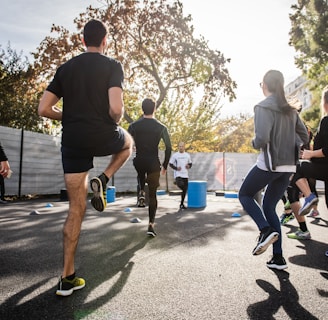Sexual and Reproductive Health for Men
Taking ownership over my own sexual health.
HEALTH
1/16/2024
Lessons:
Get screened early to assess whether your sperm quality raises any concerns. Once you complete your assessment, you can then decide whether you would like to freeze your sperm or whether additional protocols need to be integrated to improve fertility.
Conduct a self-assessment of your scrotum or testes regularly to ensure that any irregularities are identified early. Discuss any identified concerns with your physician.
Reduce or eliminate heat exposure to the scrotum or testicles. If you are exposing your testicles to higher levels of heat or for prolonged periods of time, you can use ice packs (not directly on the testes) to reduce the temperature around the groin area.
Get screened to identify your testosterone level baseline. Since it is not possible to assess testosterone levels simply by physical appearance, getting a baseline reading will provide invaluable experience in identifying possible health and reproductive risks.
Reduce the consumption of alcohol and smoking/vaping to minimize the negative impacts on general/reproductive health. Recreational drug and cannabis use may impact the quantity, quality, morphology (size and shape of sperm), and motility (ability for the sperm to move efficiently) of sperm.
For those who are noticing discomfort or numbness after a bike ride, assess whether you need a bike fit or new saddle.
Get sufficient sleep. This has a huge impact on general health in addition to reproductive health. Anywhere from seven to nine hours is ideal.
It may be advantageous to assess the quality of sperm and freeze it to have the ability to access the healthiest sperm in the future.
Over the last few years, I've started to see on my social media feed more and more women sharing their stories of complications when it comes to conceiving and childbirth. It's very brave for women to share these challenges and the emotional rollercoaster that comes with thinking about starting/growing a family. As a man, I haven't felt the same pressures; however, I now understand that approximately half of the fertility complications experienced by couples can be attributed to the man.
I have always wanted a family of my own, and it appears this may be something that will be happening later in my life. I have been doing research on the ways in which I can look after my own sexual and reproductive health to maintain/improve the odds of being a father in the future. Conceiving is a team sport, so I want to ensure I'm ready once I'm called up to bat.
I hope to share some insightful tips and action items that other men can take to look after their own reproductive health.
General Health
I try to follow some general best practices when it comes to maintaining my overall health. I try to get seven or more hours of sleep (unsuccessfully some of the time), eat a balanced diet of carbs, proteins, and fats, and minimize my sugar intake. I also integrate regular strength and cardio training, cold immersion, and consume regular vitamins (i.e. fish oils, vitamin D, etc), to supplement my general health. By following certain protocols (many of which are recommended by Dr. Andrew Huberman), my goal is to reduce the likelihood of developing cognitive and physical issues.

Screening
Similar to general health screening, it may be valuable to conduct general sperm quality screening to assess whether there are additional steps/analysis to address specific concerns. Having this early health indicator can glean information that may be relevant to manage certain lifestyle activities. It is relatively inexpensive and significantly more convenient now to conduct these assessments than in the past. I have recently contacted Olive Fertility Clinic (in Vancouver) to conduct an assessment. The cost to freeze sperm is CAD$805 ($355 processing fee + $450/yearly storage fee). I'm currently requesting information on whether this assessment includes determining the sperm quality, quantity, and completing the DNA fragmentation tests.
Lesson: Get screened early to assess whether your sperm quality raises any concerns. Once you complete your assessment, you can then decide whether you would like to freeze your sperm or whether additional protocols need to be integrated to improve fertility.
In general it is a good idea to be aware of any potential health risks around the scrotum or testes. Testicles should be the size of a walnut (~4.5cm). Being aware of whether there are any abnormalities, such as painless growths or masses, may help identify whether there is an immediate need to see a physician.
Lesson: Conduct a self-assessment of your scrotum or testes regularly to ensure that any irregularities are identified early. Discuss any identified concerns with your physician.


Testosterone
Testosterone is a hormone that helps manage libido, bone density, muscle mass, body composition, mood, and cognition. A concerning issue that has been identified is the declining testosterone levels in men across the globe. This can be due to a number of factors, such as an increased sedentary lifestyle and increased temperature around the testicles (i.e. could be due to an increase in the size of men's thighs due to being overweight). There is a strong correlation between improved sexual/reproductive health and testosterone and physical activity. Simply walking more has been shown to lead to high levels of testosterone.
There is no direct correlation between obesity and higher/lower testosterone levels, so it's important to get screened to better understand whether certain protocols would need to be taken to boost testosterone levels. Lower testosterone levels have been known to be indicators of mortality risks (i.e. high cholesterol, high blood pressure, diabetes) and poor semen quality. Maintaining a good general bill of health is one of the best way to help maintain testicular function.
I recently received a testosterone, lipid, and cholesterol test and my physician indicated I have healthy levels across the board. I'll continue to monitor these on an annual basis to identify any out of range changes.
Optimal test levels in adult men are three hundred to one thousand nanograms per ceiliter (ng/dL), and tend to decline with age. Testosterone levels typically peak in their late teens or early twenties and gradually decrease by roughly one to two percent per year after the age of thirty.
Lesson: Get screened to identify your own testosterone levels. Since it is not possible to assess testosterone levels simply by physical appearance, getting a baseline reading will provide invaluable information in identifying possible health and reproductive risks.
High levels or prolonged heat exposure due to sauna/steam room, hot tubs, seat warms can also cause an elevated risk that there may be negative consequences to the overall level of testosterone.
Lesson: Reduce or eliminate heat exposure to the scrotum or testicles. If you are exposing your testicles to higher levels of heat or for prolonged periods of time, you can use ice packs (not directly on the testes) to reduce the temperature around the groin area.


Lifestyle
Lifestyle factors contribute significantly to reproductive health (i.e. quality and quantity of sperm). Smoking/vaping has been identified to have negative consequences to general health (i.e. hypertension, lung cancer), and can lead to the inability to sustain erections. Unfortunately for East Asian males that do drink (fortunately I don't), the consequences of alcohol consumption may have a more significant negative impact on semen quality. Certain populations (i.e. Asians) are not able to produce ample amounts of the enzyme, alcohol dehydrogenase, to metabolize the alcohol (ethanol); therefore, the alcohol remains in their systems for prolonged periods. This has been shown to lead to adverse effects on sperm quality and possible DNA fragmentation.
Lesson: Reduce the consumption of alcohol and smoking/vaping to minimize the negative impacts on general/reproductive health. Recreational drug and cannabis may also impact the quantity, quality, morphology (size and shape of sperm), and motility (ability for the sperm to move efficiently) of sperm.
Dr. Eisenberg suggests that exercise that is good for the heart is good for fertility. Exercise, in particular cycling, has been a concern for fertility, primarily because of prolonged heat exposure to the testes. He suggested that cycling upwards of five hours a week may lead to some concerns; however, by modifying the position or riding style (standing up out of the saddle) or using particular saddles designed for better circulation and airflow may be beneficial from a fertility and sexual function perspective. If you feel numb after riding, assessing whether saddle position or getting a new saddle may be in order.
Lesson: For those who are noticing discomfort or numbness after a ride, assess whether you need a bike fit or new saddle.


Sleep
Getting anywhere between seven to nine hours of sleep is ideal for better semen quality.
Lesson: Get sufficient sleep. Anywhere from seven to nine hours is optimal.


Age
The average paternal age has increased from twenty seven and a half to thirty one. Men have been led to believe that our fertile road extends indefinitely; however, as we age, the risk of developing neurological disorders (i.e. autism, schizophrenia, bipolar disorder, etc), in particular to older fathers (40+). There hasn't been a direct link between a specific cause of these disorders, but some suggest that this could be due to epigenetic and mutational changes that occur with age.
Lesson: It may be advantageous to assess the quality of sperm and freeze it to have the ability to access the healthiest sperm, if needed, in the future.
I also listened to Dr. Huberman's interview with Dr. Natalie Crawford which discusses Female Hormone Health, Fertility & Vitality. I have a far better appreciation for the challenges that women go through when it comes to their health.
If you found this article to be helpful, please feel free to share and subscribe.
Thanks!


I listen to a lot of podcasts and one of my favorites is Huberman Lab, which is hosted by Dr. Andrew Huberman, a neuroscientest and professor at Stanford University School of Medicine. In a recent podcast, Dr. Huberman and Dr. Michael Eisenberg discusses how men can improve their sexual health, function and fertility.
